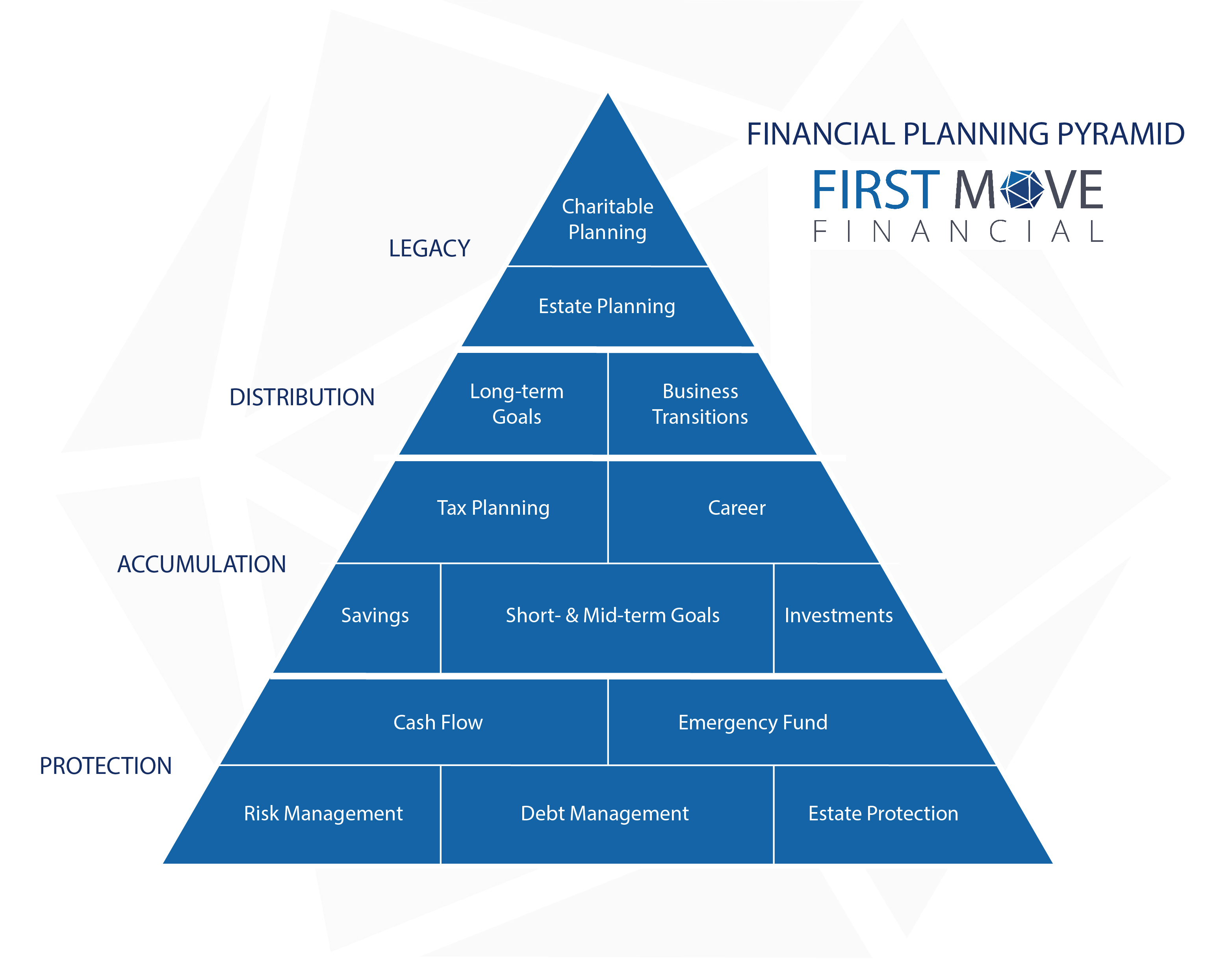By now you have likely heard of “Robo Advisors” (companies that use algorithms to invest your money instead of a person, and often do so for a nominal fee). Here I’ll share my thoughts on Robos in general, and then some specific information about some of the top providers.
First off, “Robo Advisor” is a bit of a generalization, and for many of these companies a misnomer. Most of these providers are actually “Robo Investment Managers”. The distinction to me being that an Investment Manager is only concerned with your investments and managing them as well as possible, but doesn’t care about the rest of your finances, while an Advisor should be looking at more than just your investments. They may not be looking at everything in your personal finances, but they at least have considered three or more of the general topics of investments, goal planning (retirement, college, short-term goals), insurance, estate, budgeting, debt management, etc. I say three or more because many Investment Managers will look at your goals, and use them to guide how they invest, but that doesn’t mean they are managing anything more than your investments. Here’s a quick example:
You want to retire at 60, living off of $60,000 per year with a life expectancy of 40 years. Time Value of Money says you need roughly $1,200,000 to retire. Therefore, many websites will give you this as your “Number”. But what inflation rate did they assume? Did they account for the taxes you’ll have to pay to get to that money if it’s all in your 401(k)? What about Social Security benefits? Did they account for the fact that your parents, and their parents, spent 5 years in long-term care at end of life, so you likely will as well? How does buying a car every 7 years instead of every 6 years impact the projection? Do they assume that the new tax law is allowed to sunset or that Congress removes the sunset provision?
In other words, is there any way for you to know, and adjust, all of the assumptions that went into the projection? And more importantly, will they be reaching out proactively when something happens that alters the projection? For some, the answer is “Yes”. For most, you can go in and see the basics, and adjust them as time goes on. For most people that should actually be enough, but please don’t think that these companies are replacing everything a financial advisor should be doing for you.

Are Robos Worth It?
Like most things, it depends. If you are comfortable managing your own investments and have the time to look at and adjust things from time to time, then probably not. However, if you have no comfort in managing your investments or are so pressed for time that you have just let this slide for way too long, then a Robo is probably worth the fee they’ll charge. If you need help beyond just the investments, you’ll want to pay attention to if the Robo offers these or if you should look for an Advisor using XYPN’s or NAPFA’s Find an Advisor page.
Which Robo?
Let’s assume you’ve decided that you don’t want to manage your own investments, and you aren’t convinced you need a financial advisor. So which Robo do you choose? First, find out if you are able to meet the Robo’s minimums, which may eliminate some options. Next, look at the fees, services, track record, usability, and overall “feel” of the platform. When all is said and done, a Robo that you use to actively save money and invest is better than one you don’t understand so you don’t make use of.
So take a look at these three, see which one you like the feel of, and start putting money aside for your future!
Betterment
The top independent Robo, and one of the better solutions out there still is Betterment. They have a .25% fee with no minimum deposit requirement. The portfolios are made up of mostly Vanguard ETFs and are very low-cost. The technology is easy to navigate, and they make it simple to save and invest. They also now have a Premium Tier where they charge .40% on the portfolio and give you access to real live CFP© professionals for the help that the Robo can’t provide.
The big drawback of Betterment was their handling of the Brexit short crash, where they suspended all trading (so you couldn’t buy or sell while the market was down). They’ve announced that they will continue that policy in the future, which is why I did not choose Betterment Institutional as my custodian.
Wealthfront
Wealthfront isn’t as widely known as Betterment but is very close in total assets under management. They have a minimum account size of $500, which is rather low for the fee. They charge .25% on all accounts and include financial advice in other areas using an algorithm they call Path. As such, Wealthfront is one of the very few true “Robo Advisors” available. While I haven’t used it personally, it seems like a trustworthy and user-friendly system.
Schwab Intelligent Portfolios
While Schwab is well-known, those who don’t have any accounts at Schwab may not know that Schwab Intelligent Portfolios is a “FREE” Robo Investment Manager available for those with at least $5,000 to invest. I say “FREE” because the system uses mostly Schwab funds for their investments, so they make their money on the back end (whereas Betterment and Wealthfront utilize other companies’ ETFs and make no money on the investments themselves). The big drawback here is that at least 6% of your money HAS to be allocated to cash, and for those with very conservative portfolios that increases to 30%. This seems high, especially when most investors will also be holding cash outside the portfolio. Plus this cash is invested at Schwab Bank where the interest rate being paid is 0.40%, which is great compared to most big banks, but when compared to the 1.80% at Ally or other online banks or even the 1.88% that Schwab’s Money Market Mutual Fund currently pays, it pales by comparison. So this “FREE” service actually costs somewhere around .25 - .30%, fairly similar to Betterment and Wealthfront.
Acorns
Consider Acorns if 1) you really are starting from scratch and are having a tough time putting together $500 to put into Wealthfront or 2) Betterment doesn’t look like a good option to you. The concept here is simple. The app will round up each of your purchases to the nearest dollar and invest that change in a diversified portfolio for you. Acorns costs anywhere from $1 - $3 per month depending on the tier you choose. Again, I haven’t used this system personally, but I LOVE the concept, and I haven’t heard anything negative about the company.

Alternatives to Robos:
Vanguard Personal Advisor Services
If you have the $50,000 minimum to gain access to the advisors at Vanguard, your fee will be .30% (going down for larger account balances). However, before you get to this level of assets Vanguard still has tools (like pretty much any custodian) that help you pick the right asset allocation for your portfolio, and Vanguard is well-regarded as a leader in low cost investing.
Couch Potato Investing
Never trust financial advice from someone yelling at you with weird sound effects in the background. And while I greatly despise most financial authors who give advice on investments without the benefit of knowing anything about their audience, Scott Burns doesn’t tell you to SELL SELL SELL while holding props. What Mr. Burns suggests is a balanced portfolio of anywhere from two to ten mutual funds (I would use lower cost ETFs personally), which while it isn’t personalized and isn’t optimized for taxes like the Robos above, is still far superior to what most people accomplish in the market on their own.
Hire an Advisor

Ok, so I do have to plug myself occasionally. I work with clients to appropriately allocate their investments and decide where they should be held. For many that is at TD Ameritrade where I have access to a No Transaction Fee group of ETFs and can manage
the portfolio without any fuss. I have a few clients who have kept, or moved, their accounts to Vanguard so they have more control, and with a lot of headache in the setup, I can be an authorized agent on the account and help them manage it.
In addition, I, and many other advisors, will work with you on far more than just your investments. After all, investments are only one of the many pieces of your overall financial picture.
Regardless of how you choose to invest or where you account ends up, remember the keys to investing are 1) be diversified, 2) don’t sell when the market crashes, and 3) consistently put money aside. If you follow these three keys, you’ll already be ahead of the game.

